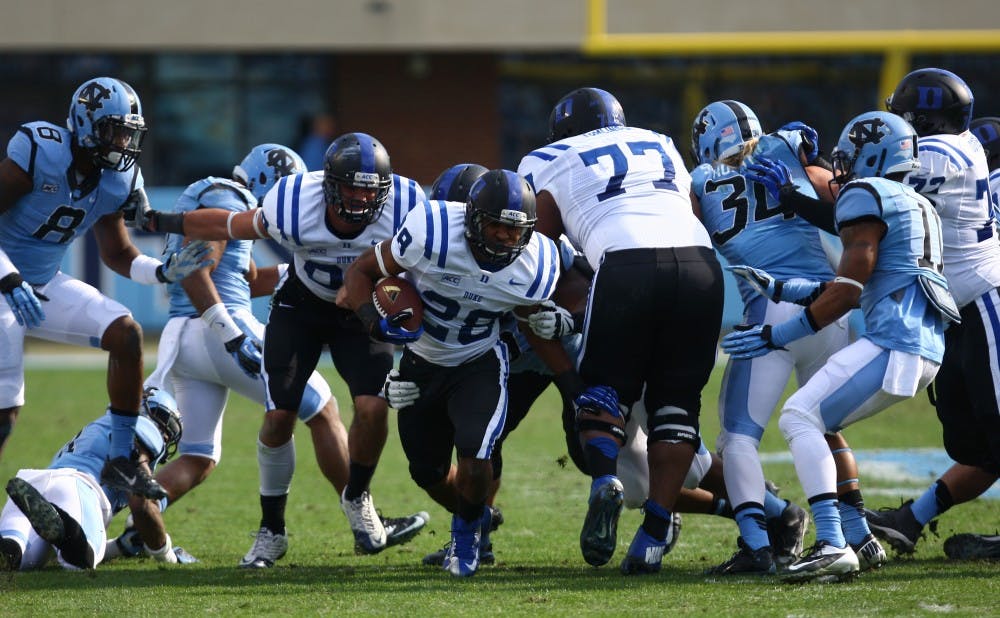News and Observer Publishing Co. sued UNC Chancellor Carol Folt last Thursday for student records that could help illuminate the origins of the athlete academic performance scandal at the University of North Carolina at Chapel Hill.
John Drescher, executive editor of the News and Observer, said UNC has released the requested records dating from 2006 to 2011 but is withholding records from the mid-1990s when the “bogus” classes began. UNC officials claim that the records in question contain information protected under the Family Educational Rights and Privacy Act, which permits educational institutions to withhold information that could be used to personally identity students.
Jonathan Jones, director of the North Carolina Open Government Coalition, called the school’s legal standing on FERPA “tenuous.”
“If they’ve brought this information forward for some years, why can’t they release it for others?” Jones said. “Universities should be and can be as transparent as possible. UNC, through this whole scandal, has refused to be transparent.”
Drescher contends that the requested records are not protected by FERPA because they do not identify students by name and the likelihood of identifying a student based on the information contained in the records is very low.
According to a Jan. 23 News & Observer article, UNC attorneys have said that the spreadsheets in question are broken down into 13 categories-—including the name of the student, their sport, cumulative GPA, major and semester. The News & Observer has requested a copy of the spreadsheet with all the fields redacted except those titled “sport,” “course title” and “semester.”
“We’re not interested in identifying specific students by name,” Drescher said. “However, we are interested in knowing the composition of these bogus classes by sport. We want to get that information from an earlier period when the classes started, to really get to the root of the issue and see if there are any trends.”
Joel Curran, vice chancellor for communications and public affairs at UNC, said the records in question were protected under federal privacy law and said the school would “vigorously defend the privacy rights of [students]” in a statement last Thursday.
Karen Moon, UNC director of news services, and Steve Kirschner, UNC senior associate athletic director for communications, have declined to comment on pending litigation beyond releasing the statement by Curran.
Jones said that the school has historically used FERPA in “ridiculous” ways, including use of the law to withhold information on student parking tickets and phone numbers of football coaches.
“There’s a history there of the university hiding behind FERPA,” Jones said.
UNC came under fire earlier in January when Mary Willingham, an academic advisor at the university, released information showing that of 183 athletes who played football or basketball from 2004 to 2012, 60 percent read between fourth- and eighth-grade levels. Willingham’s research also showed that 8 percent and 10 percent read below a third-grade level.
A Southern Association of Colleges and Schools’ Commission on Colleges’ investigation revealed that courses in question were overwhelmingly attended by student-athletes. Of the 384 students who signed up for the classes, 173 were student-athletes. Of those student-athletes, 88 were football players and 21 were men’s basketball players.
Willingham’s report is the latest in a series of scandals at UNC pertaining to the academic performance of student athletes. A 2012 investigation found that UNC had been offering bogus classes since the 1990s, which required no work or attendance. Most of the courses had been made available through the school’s African and Afro-American Studies Department. The department’s former chair, Julius Nyang’oro, was indicted for academic fraud in December after being paid approximately $12,000 for a class he did not teach.
UNC had maintained that the case was an isolated incident until last Thursday, when UNC Chancellor Carol Folt apologized for the bogus courses and accepted responsibility for academic fraud.
“All of those students who were involved in those courses deserved better from us,” Folt said in a press statement last Thursday. “We also accept the fact there was a failure in academic oversight for years that permitted this to continue.”
The News & Observer is within its right to collect this information in order to provide more information on the issue but not to identify individual students, said Phil Bennett, Eugene C. Patterson professor of the practice of journalism and public policy and director of the DeWitt Wallace Center for Media and Democracy.
Professor Ken Rogerson, lecturer in Public Policy and director of undergraduate studies at the Sanford School of Public Policy, echoed this sentiment, stating that UNC as a public institution is subject to public records laws. News organizations have access to information based on these laws, and though there are exceptions, lawsuits from organizations of good reputation are rarely frivolous.
“That’s what news organizations do, especially in democratic societies like the U.S. they try to access information that should be known to the public,” he said. “This is a normal thing.”
Get The Chronicle straight to your inbox
Signup for our weekly newsletter. Cancel at any time.

